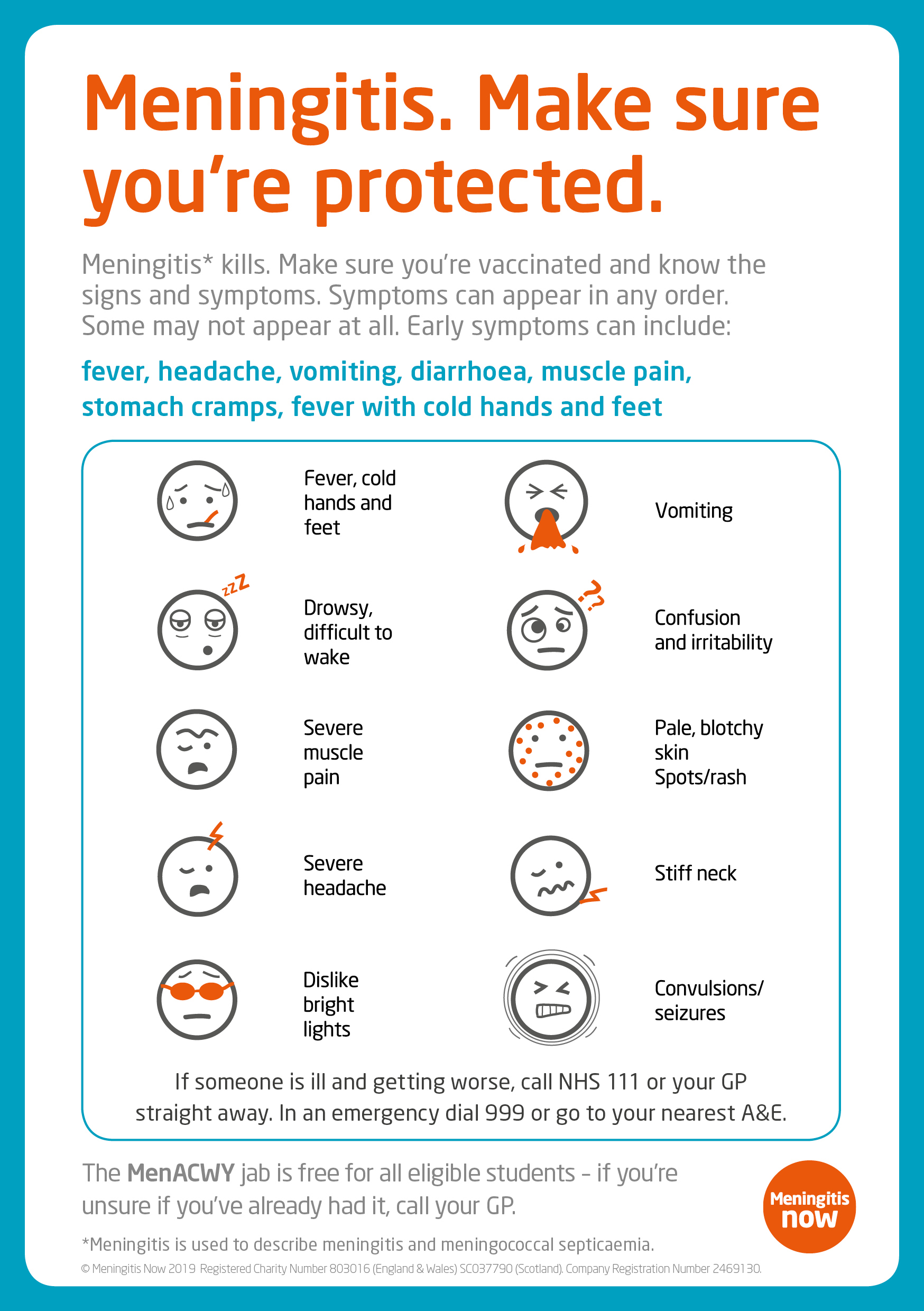
Meningitis is comparatively rare, but it is important to be aware of the symptoms and be prepared to take urgent action whenever it is suspected, as it can develop suddenly and progress rapidly. Early treatment can be lifesaving.
University students are at higher risk of infection due to mixing closely with lots of new people, some of whom may unknowingly carry the meningococcal bacteria.
Symptoms can start like a bad case of flu but they get worse very quickly. Symptoms can include:
- a severe headache
- vomiting
- a stiff neck
- muscle and joint pain
- pale, blotchy skins / spots / rash
- a high temperature/fever
- cold hands and feet
- a dislike of bright lights
- drowsiness or difficulty waking up
For further information about the symptoms please visit the NHS website

The symptoms can appear in any order. Some may not appear at all. In the early stages, there may not be a rash, or if there is a rash the rash may fade on pressure. You should be alert to the signs and symptoms and should not wait for a rash to develop before seeking medical attention urgently.
Students are also encouraged to look out for their friends, particularly if they go to their room unwell.
You should get medical advice as soon as possible if you’re concerned that you could have meningitis. Call 999 for an ambulance or go to your nearest A&E immediately
How to get a vaccination
A free MenACWY vaccination is available for any unprotected individual under 25 years of age.
The MenACWY vaccine protects against 4 different causes of meningitis and septicaemia: meningococcal (Men) A, C, W and Y diseases.
If you have not been vaccinated, or you are not sure, it is important you contact your GP and arrange to receive the vaccine. If you haven’t registered with a GP in Liverpool yet, make sure you contact Brownlow Health or your local GP as soon as possible to register.